4 Health Benefits of Eating Grapes and 6 Proper Ways to Consume Them
Advertisement

Grapes are a nutritional powerhouse, offering a delectable and juicy flesh packed with various vitamins and minerals, along with antioxidant anthocyanins. Furthermore, grape skins and seeds boast abundant polyphenols and anthocyanins, providing powerful antioxidant and anticancer properties. Each part of the grape contributes unique nutritional benefits. This article explores 4 key nutrient categories in grapes and their associated advantages. Additionally, discover 6 tips for maximizing the nutritional benefits of grapes, guiding you to make wise and health-conscious choices.
The 4 Nutritional Benefits of Grapes
Grapes, often dubbed the 'god of fruits' or 'plant milk,' are a nutrient-rich powerhouse. They boast a diverse nutritional profile, containing citric acid, vitamin A, B vitamins, potassium, iron, zinc, copper, and various other minerals. Derivatives like wine, raisins, grape seed oil, and grape jam are cherished by many.
The title 'plant milk' is bestowed upon grapes due to their rich nutrients and potent benefits. Notably, four categories of nutrients contribute to these effects.
1. Polyphenols
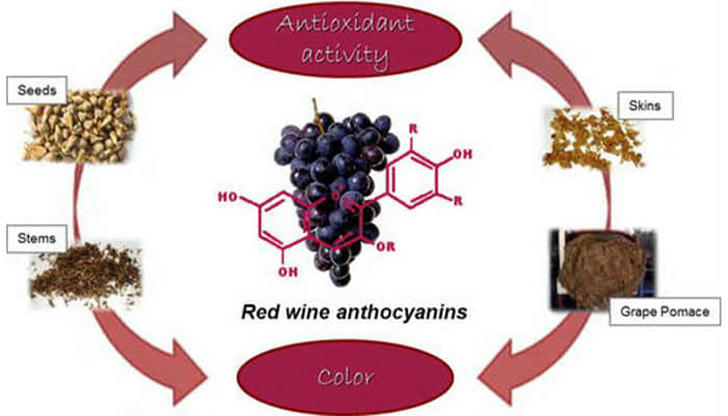
Polyphenols, particularly anthocyanins, resveratrol, and tannins, stand out as the most captivating components in grapes.
Anthocyanins, known for preventing eye fatigue and atherosclerosis, work alongside resveratrol, which inhibits collagenase to counteract wrinkles and maintain skin firmness. The strong antioxidant properties of polyphenols also contribute to inhibiting atherosclerosis. Noteworthy findings from a study in 'Nutrients' revealed a 6% reduction in LDL cholesterol in participants consuming the equivalent of 2 servings of grapes daily for 8 weeks, accompanied by increased gut microbiota diversity.
Further research suggests the potential of grape seed extract and resveratrol in preventing colon cancer by targeting cancer stem cells.
Given that grape skins are rich in polyphenols, it's advisable to consume them with the skin. Additionally, grape seeds contain 'proanthocyanidins,' making it beneficial to include them when juicing along with the grapes.
2. Glucose
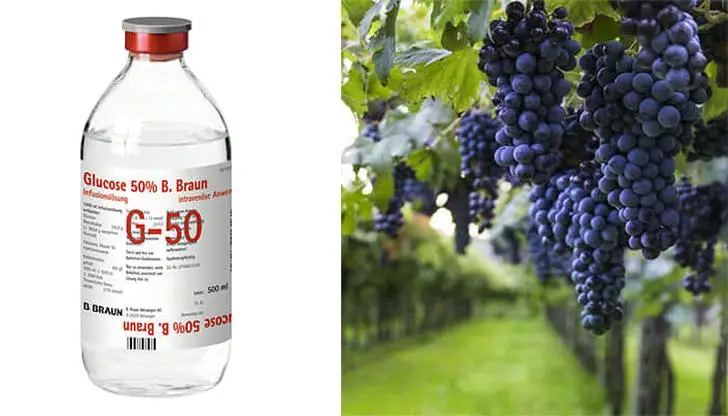
Discovered initially in grapes, 'glucose' provides swift energy to the brain, boosting attention and activating cognitive functions. Grapes, rich in easily absorbed carbohydrates like glucose and fructose, offer a rapid solution for overcoming fatigue.
When in need of a quick energy boost, especially during study sessions or workouts, grapes prove to be an ideal choice. In comparison to fruits like bananas or pineapples, grapes stand out for their effectiveness in promptly replenishing energy levels.
3. Potassium

Potassium, abundant in grapes, serves a crucial role in metabolizing sodium (salt) and facilitating its elimination from the body. This function acts as a preventive measure against high blood pressure.
Excessive salt intake often leads to water retention and subsequent swelling in the body. Potassium, by regulating the body's salt levels and exerting a diuretic effect, effectively mitigates the risk of swelling by reducing salt content.
4. Vitamin B Complex

Vitamin B contributes to energy metabolism, mucous membrane regeneration, and maintenance of immune function, and reduces anemia and fatigue. In addition, the folate found in grapes is beneficial for fetal growth and development, making it suitable for consumption by pregnant women. The organic acids in grapes have antioxidant and antibacterial properties, which can enhance immunity.
6 Tips to Help You Eat Grapes Right
To make the most of the nutritional benefits of grapes and harness their effects, here are 6 comprehensive tips:
1. Eat Grapes When Dizzy or Low on Blood Sugar

Grapes have a relatively high content of glucose, ranging from 10% to 30%. As glucose is one of the most important monosaccharides in nature, it is easily absorbed and utilized by the human body, providing a quick energy boost and relieving fatigue.
2. Boost Energy with Raisins – No Need to Worry About Preservatives
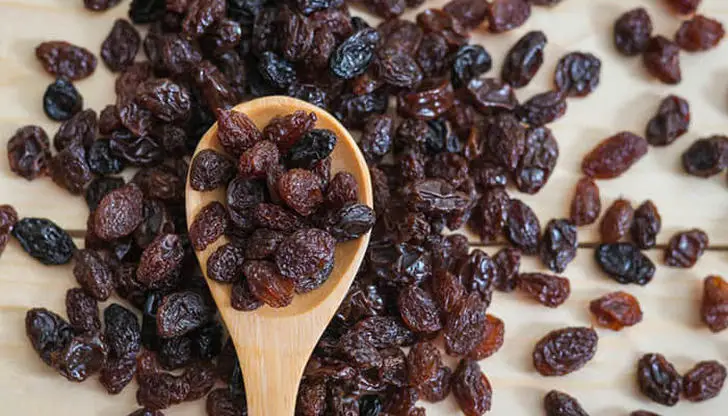
For busy professionals who may not have time to buy fresh grapes, keeping a jar of raisins at home or in the office is a great solution. When feeling tired, grab a handful or just a few, and you'll quickly recharge, feeling energized.
3. Apple Grape Juice Helps Protect the Prostate
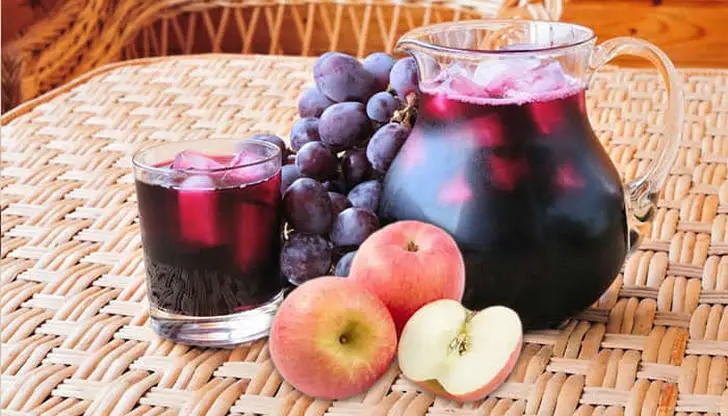
Compounds like quercetin and myricetin in apples protect the prostate and inhibit the growth of prostate tumor cells. Similarly, grape phytochemicals like resveratrol, tannic acid, and proanthocyanidins can also prevent prostate cancer.
4. Prefer Grapes with Seeds
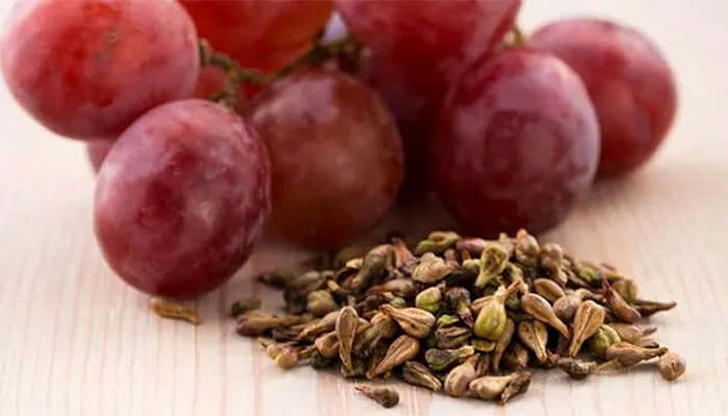
Seedless grapes are not naturally seedless but are produced through the use of plant hormones like gibberellins during cultivation. Typically, grape fruits are generated through pollination via pollen on the stigma. However, by soaking grape clusters in a gibberellin solution, grapes can bear fruit even without pollination. Therefore, eating grapes with seeds is more natural.
5. Want to Lose Weight? Keep the Grape Skin
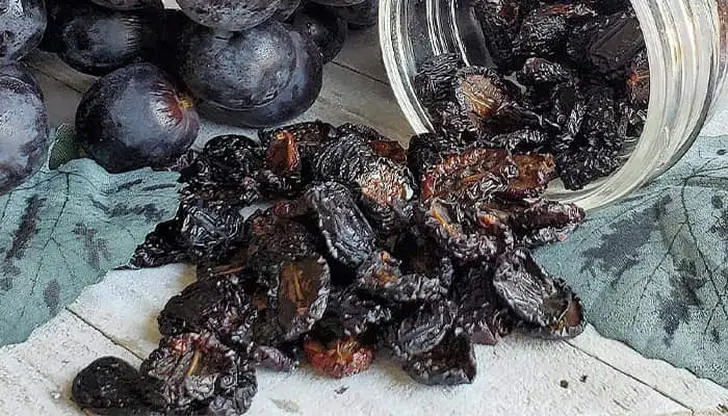
Grape skin is highly nutritious, containing a significant amount of dietary fiber. Eating it can provide a sense of fullness and aid digestion. Those aiming to lose weight can consume grapes without discarding the skin.
6. Eat Grapes in Moderation

Grapes are delicious and nutritious, but excessive consumption may lead to issues such as constipation, diarrhea, and indigestion. According to medical records, consuming 20-30 grapes per day is sufficient.



